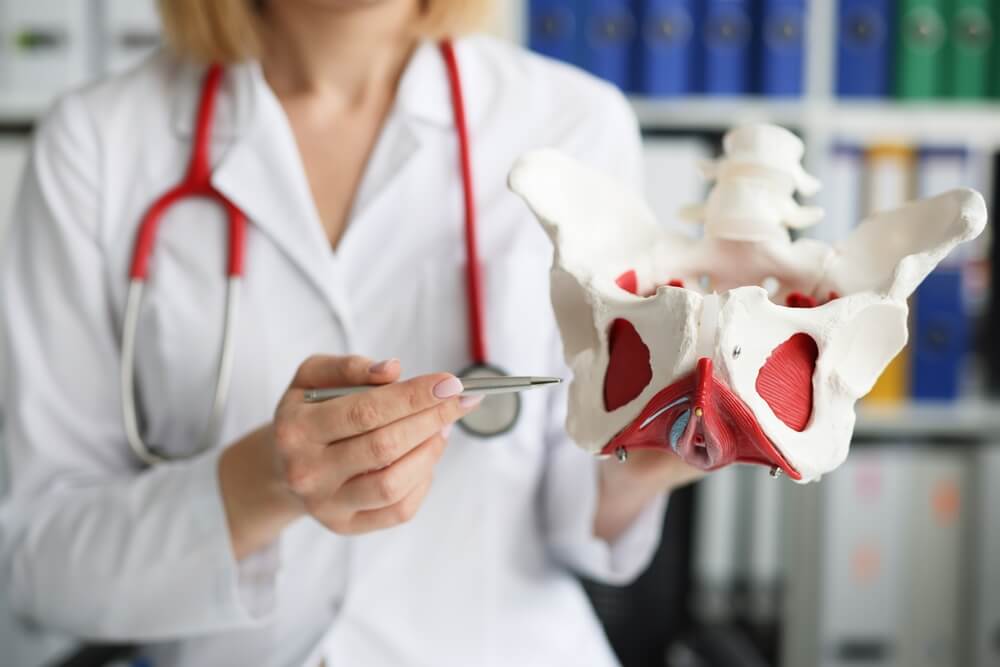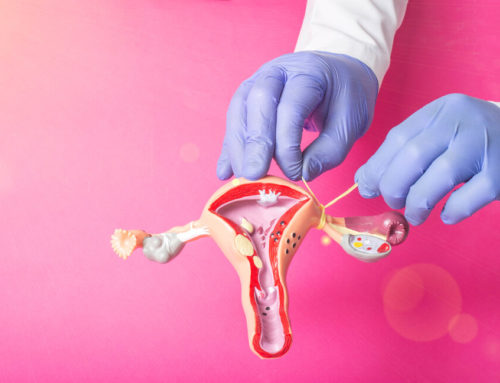Pelvic congestion syndrome, pelvic venous congestion, or PCS syndrome, is a condition that affects many women today. The main characteristic of this condition is chronic (lasting longer than six months) pelvic pain, which is not related to any additional state of the reproductive system, such as the menstrual cycle or pregnancy. Generally, experts state that the pain is caused by veins which are located in the pelvis area in the lower abdomen.
The word congestion indicates that something is clogged and there is no free movement or flow, so when it comes to the PCS syndrome, the veins in the pelvis area stop working as they should due to some type of congestion. The blood begins to build up inside the veins, and due to this, the veins themselves enlarge, change shape, and look like varicose veins. This can cause a lot of pain, in addition to all the other PCS symptoms, which will be explained later.
The two most common categories of people who experience pelvic congestion syndrome are women in their childbearing age and women with more than one child. Services of pelvic pain treatment are various and can be found in many different places. Advanced OBGYN Institute is a clinic that offers these types of services to its patients and has an expert team of medical professionals who are highly experienced in pelvic pain.
Women who suffer from varicose veins, or have someone in the family who suffers from this condition, as well as PCOS, are also a risky category when it comes to pelvic venous congestion. Around 40% of patients who visit a gynecologist have issues with chronic pelvic pain. Out of this percentage, 30% of women suffer from PCS.
Causes of PCS Syndrome
Unfortunately, experts have yet to discover the cause of pelvic congestion syndrome. Still, for the time being, the most obvious reason is the irregular blood flow in the pelvic and ovarian veins.
As we all know, veins are blood vessels that carry blood to the heart. The blood flows upwards, starting from the pelvis towards the heart, and some valves do not permit the blood to flow in the other direction, i.e., backward (called reflux).
When a person suffers from PCS, their veins are dilated, and the mentioned valves do not prevent the backward blood flow, meaning that the veins overfill with blood, get twisted, and the pools of blood cause pain. The blood itself does not cause pain, but the fact that the veins have to stretch to take in that unnatural amount of blood could be hurtful, or the fact that when the veins expand, they touch the nerves in their surroundings, and in that way, pain is triggered.
Many experts also state that pregnancy and hormones can be essential in developing PCS syndrome. Pregnancy causes veins to enlarge, so they can support all the increases in blood flow, making them permanently deformed. On the other hand, women who are in menopause rarely suffer from this condition, meaning that hormones such as estrogen affect the dilation of veins.

Symptoms of Pelvic Venous Congestion
As mentioned in the beginning, the main symptom of this condition is chronic pelvic pain. Usually, the pain is on the left side, which can be dull or sharp and worsens as the day ends. The pain can also worsen when changing the posture, during sexual intercourse, when standing for a long time, or having a long walk.
Additional symptoms include:
- Painful periods
- Painful pre-menstrual days
- Urges to urinate
- Issues with diarrhea or constipation
- Painful urination
- Enlarged veins in the lower parts of the body, genitals, and thighs
Diagnosis of the Condition
The first question your chosen doctor will ask you when diagnosing this condition concerns your medical history and family anamnesis. Afterward, your symptoms will be discussed, and a physical exam, including the pelvic exam, will follow. The tenderness of the ovaries, the womb, and the cervix is usually checked to determine where the pain comes from. You might be asked to do a blood and urine test to check for additional issues such as STIs, pregnancy, anemia, etc.
Some exams also include imaging to exclude any other potential causes of pain and to check how irregular the veins are. The imaging approaches can be:
- Ultrasound which can show the dilation of the pelvic blood vessels and other irregularities which are causing the pain. There is an option of a Doppler exam as well, where the doctor can see if the blood flows backward.
- CT or MRI scanning is used to show the smaller details in the veins, which might be missed with an ultrasound. These imaging tactics show whether the pelvic blood vessels are twisted or dilated in a better, clearer way than the ultrasound and also pinpoint whether there are any additional issues or growths in the pelvic area.
- Pelvic venography is the most commonly used technique for PCS and imaging. A bit more invasive but used when other tactics do not give enough evidence to make a proper diagnosis. This approach is also used when doctors prepare for operations of varicose veins in the pelvis and other procedures, including vein operations. More simply put, it is an X-ray of the pelvic veins.
- Laparoscopy is used when the doctor wants to check if your veins are dilated. Unfortunately, this approach cannot be used to check for blood flow, so it is generally used to exclude other conditions during a potential PCS diagnosis process.
Giving a diagnosis of pelvic congestion syndrome can be demanding because people can have dilated veins, varicose veins in the pelvis, irregular blood flow, etc., and not experience any pain. Although you might have all of the mentioned issues, if you do not feel chronic pain, you do not need treatment.

Treatments for PCS
A cure for pelvic congestion syndrome has not been invented yet, but there are procedures and medications which can help with the pain and other symptoms. As with any other condition, the treatment plan must come from your doctor and must be fit for your particular needs, the symptoms you are experiencing, and your medical history.
Potential treatment options are:
- Progestin drugs
- Embolization
- Surgery for removal of damaged veins
- Removal of the womb and ovaries
- Shut off of veins that are damaged
- Gonadotropin hormone drugs which serve to block ovaries and stop their functioning
- Etonogestrel implants
- Goserelin
Schedule Your Appointment Today!
If you are suffering from chronic pelvic pain, please do not wait any longer and visit our clinic. Our team of experts is here for you, and you will get the best possible treatment plan if you are suffering from pelvic congestion syndrome and all possible support if you decide to become our patient. We are here for you, so do not wait – call us and schedule an appointment!





